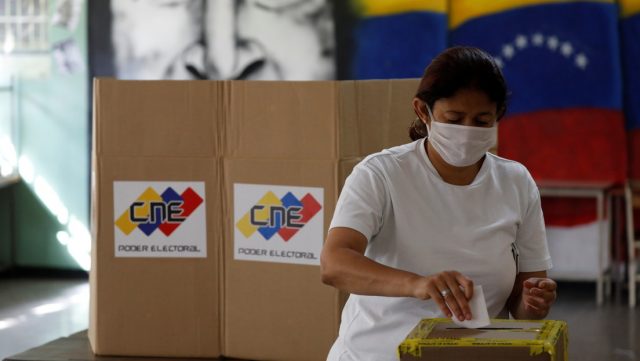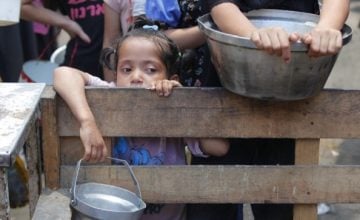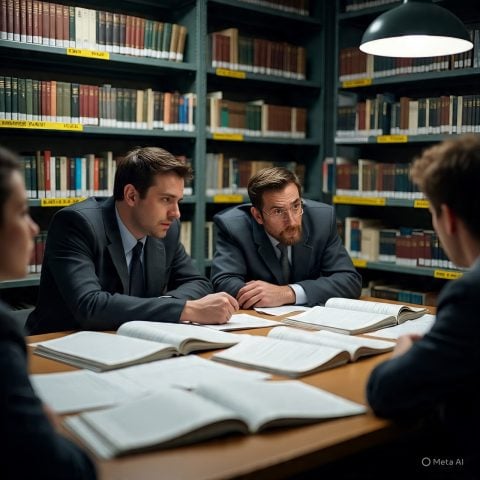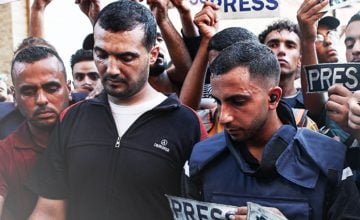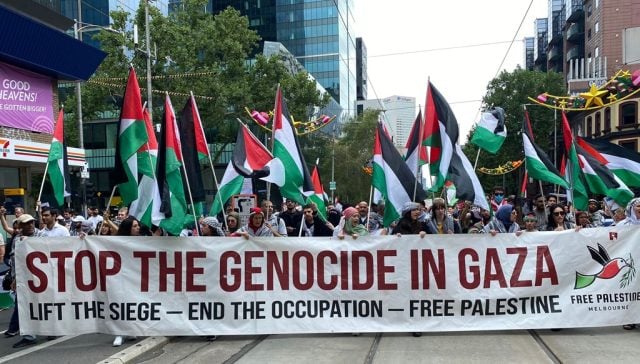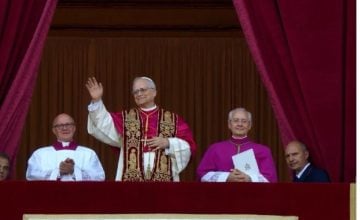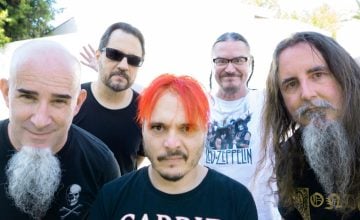There are 20 days left for Venezuela to hold the so-called ‘mega-elections’, a complex electoral event that will define 3,082 public offices distributed in 23 governorates, 335 mayors, seats for the State Legislative Councils and for the municipal chambers.
The route to these elections has been forged since the beginning of this year with a series of approaches and negotiations that will allow the participation of 70,244 candidates, of which 3,082 are from the Chavismo – one for each position in dispute – and the rest from the different factions’ opponents. The applicants are distributed in 329 for the governorates; 4,462 for mayors; and 65,000 for regional and local councils.
Although it will not be a national presidential election, the event represents a turning point for the Venezuelan context, so RT spoke with the writer Enrique Ochoa Antich and the philosopher Miguel Pérez Pirela, who are at the opposite of their political positions, to inquire about the climate in the country, the prospects for 2022 and what is at stake for the actors competing in the elections.
The suspension of the dialogue in Mexico
Last month, the suspension of the dialogue between the Government and the opposition in Mexico generated a lot of ‘noise’ in the face of the November election, since the decision was due to the extradition of businessman and diplomat Alex Saab to the United States, who had been previously designated as representative of the Executive at the negotiating table.
For Ochoa Antich, the pause in the dialogue is a «mistake» and the appointment of Saab as delegate, «an unnecessary provocation». Despite this, he considers that these events will not have a decisive impact on the elections because, «neither the Government can escape from the concessions made for the G4 participation of the G4, nor the latter from its commitment to participate».
«I understand how grateful the government is [to Saab] for having come to its aid when the greatest difficulties were encountered – with the CLAP (Local supply and production committees), for example. But the interests of the country cannot depend on the destiny of an individuality. I trust that the government will return to the table soon», asserts the opposition politician, who calls the extradition of the diplomat to the United States «untimely».
In his opinion, “if Saab committed crimes in the United States, money laundering, for example, that country has the right to prosecute it, but if it wants to prosecute it for crimes committed in Venezuela, such as overpricing and bribery, it seems to me an unacceptable extraterritorial action».
For his part, Pérez Pirela recalls that just before the talks began in Mexico, the president of Venezuela, Nicolás Maduro, warned that the opposition representatives (in Mexico) acted more like ‘US pawns’ than as a political group that opposes his Government.
The analyst agrees with Maduro and affirms that the radical opposition that participates in the dialogues is a faction that, in recent years, “has taken on the task of deconstructing and trying to boycott the country’s institutions, with the creation of the parallel government of Juan Guaidó», so that «makes the outlook very complex» for the negotiations.
Provocations against dialogue
«There is a boycott (to the dialogue) by factors that play a double game: on the one hand they bet on a dialogue and a negotiation table, but on the other, we see repeated attempts to damage it», says Pérez Pirela, who emphasizes that before the withdrawal of the Government from the negotiating table, there were several external «provocations» to try to sabotage the rapprochements.
The first of these – he says – was “the Monómeros (A venezuelan State company in colombian soil) robbery carried out by the president of Colombia, Iván Duque; then the interference statements of Josep Borrell on Venezuela; and finally the case of Álex Saab, which ended up making the Venezuelan government leave the table. They are real and specific events that follow the logic of those opposition groups that play the good cop and the bad cop».
All this, he adds, “goes against the will of the Venezuelans, who end up being ‘kidnapped’ —whether to the right, to the left or in the center— by the extremist opposition that does not decide for itself and this makes a few people think, weeks before a mega-elections process and in the face of an adverse electoral scenario generated by its (the oppositions) continuous errors, that for the umpteenth time the oppositions could resume the complaint of fraud.
Several «oppositions and chavismos»
For Ochoa Antich, the electoral perspective that looms depends on the positions taken by the different oppositions and the «various Chavismos» who – he assures – oppose the Government.
“The government has been a minority in the country for many years: Maduro won with 30% in 2018 and the PSUV won with 26% in 2020. Not only are there several oppositions but there are several Chavismos: one who is in the government and others, who are in the opposition. This has resulted in that a force, (the PSUV) that used to be around 60% of the electoral sympathy, now has gone down to 30% «, considers the opposition politician.
For this reason – he insists – it is the voters who must do the work that the political parties have not achieved. “If opposition voters do from below what the party leaderships did not do from above: unite and concentrate the vote on the most legitimate candidates with the most options, both the G4 and the Democratic Alliance and even independent candidates, can win in many decisive states such as Zulia, Lara, Táchira, Mérida, Miranda, Sucre, Nueva Esparta, Bolívar, Caracas, La Guaira and Amazonas”, says Ochoa Antich.
Will the Venezuelan opposition overcome internal fractures?
The different fractions of the opposition have been in the limelight, in recent months, because of cross accusations to several of their spokesmen for being involved in crimes of corruption. This has increased internal fractures and generated a climate of distrust among its followers.
Ochoa Antich indicates that this situation represents «a very unfortunate episode for the opposition», because it prevents it from showing itself as a reference for voters who do not sympathize with the Chavismo and implies that none of these political options «has the moral or political authority to govern Venezuela».
For this reason, he alleges that a third way is emerging, away from the government and the opposition, which «is beginning to take shape from the municipalities and states».
However, Pérez Pirela takes it for granted that the excessive fragmentation of the Venezuelan opposition will be its ‘fast track’ to failure at the polls. «The electoral victory is the unity of the forces and the opposition has never been so divided, a divisionism generated from the shadows by Leopoldo López with Juan Guaidó and company», explained the analyst.
In addition, he warns that the opposition is, at the moment, «a commercial business of influence peddlers». “There are politicians”, argues Pérez Pirela, “who have become a kind of mafia that steals the resources of Venezuelans abroad, who have been living of the United States, Europe and the NGOs for 20 years, and who know, that although they can go on the democratic road, it is better for themselves to hijack politics so as to earn a lot of money».
In political terms, however, the ‘game board’ seems to favor the Government, which has never shied away from the electoral path and has no complex to defeat an opposition that has put forward several candidates for the same position. «That division, in electoral terms, is the greatest gift that an opposition can give to a government, a division that Donald Trump radicalized with the invention of Juan Guaidó», asserts Pérez Pirela.
At that point, Ochoa Antich converges, since he estimates that the result will be «arithmetically» affected by opposition fractures, which are «the main advantage» that the government candidates have.
What will the post-electoral climate be like in Venezuela?
But beyond the additions or subtractions, the opposition divisions and the Chavismo coalition, Ochoa Antich predicts that after those elections, «no one will be left out» of the political board. There will be more actors in the political scenario.
The next step would be – in his opinion – the formation of a «Government of Emergency and National Unity» that joins efforts to «unblock the country from the world» and reach a «consensus on economic policy». Otherwise, he predicts that «the devastation of the country will continue».
For Pérez Pirela, it is most likely that some of the opposition will return to the political game within the democratic order, after they win certain mayors and governorships, although not the majority. «This will open a process of re-institutionalization that will leave isolated and relegated a minority (of the opposition), those factors that play to break the republican and institutional dynamics of the country, the structure of the Nation State of Venezuela».
What will the role of the EU be like in the elections?
Ochoa Antich explains that both the presence of EU and UN missions as observers of the electoral process could lead «to a re-establishment of relations between Venezuela and all of Europe, and to the isolation of the most conservative and warmongering sectors of the United States».
“If that presence of the EU and the UN results in the recognition that the Venezuelan electoral system does not allow fraud, and that beyond the abuses of power, which are and will be many, the results are what they are, that will help open the possibility of a democratic change in peace and sovereignty by 2024”, adds Ochoa Antich.
For his part, Pérez Pirela indicates that the presence of the EU, based on the remarks made previously by Josep Borrell, could become an agent that generates controversy and they could, finally, assume a role such as that carried out by the Organization of American States (OAS ) in Bolivia, which led to a coup against then-President Evo Morales.
«Will the role of the EU be, for example, the same as that of the OAS in Bolivia, which plays the role of companions and ends up preparing a coup d’état? We are at a time when there are more questions than answers and more doubts than certainties», says Pérez Pirela, who believes that with the dialogue in Mexico at a standstill, the possibility that the opposition, once again, takes refuge in the fraud complaint remains latent.
Relations between Venezuela and the United States
One of the key points that remains to be seen, is what will happen to Venezuela’s relationship with the United States, taking into account that the opposition – even the one that supports Guaidó – will participate in the November 21 election.
According to the Venezuelan philosopher, after the elections, Washington could change its position with respect to Caracas, since the commercial factor could determine a rapprochement. Beyond the fact that Joe Biden’s current policy is aligned with his predecessor Donald Trump, Pérez Pirela does not rule out the possibility that the White House is betting on normalization.
“It is the same thing that is happening in Colombia. The Colombian parliament is coming together with the Venezuelan because its economy, trade and employment have fallen. Furthermore, as Gustavo Petro [leftist candidate] is in the lead in the presidential polls, political factors are beginning to turn their backs on Iván Duque and his mentor Álvaro Uribe”, he adds.
Ochoa Antich agrees that the election of Petro in Colombia is quite probable and foresees that, if it materializes, it would imply «a fundamental change in the policies of the Colombian State internally and externally» with Venezuela, although he recalls that the Colombian candidate «has been very critical of Maduro, even calling him a dictator».
For now, the electoral schedule is on its way, although there are factors that could still influence the development of the event, such as the visit of the Prosecutor of the International Criminal Court (ICC), Karim Khan, who arrived in Caracas on Sunday.
Meanwhile, in the final stretch of the campaign, the parties seem to play ‘two-bands’ game: on the one hand, they are betting on reaching the highest number of votes for popularly elected positions; and on the other, they advocate paving the way for political normalization and stability in the country.
